10 Foods to Help You Gain Weight
Medically reviewed by Marisa Moore, RDN, MBA
So much nutrition and diet advice is aimed at losing weight, but if you're too thin, you may be at a loss on how to gain weight. Which foods are healthiest and best for gaining weight? Instead of trying to gorge yourself with masses of sweet, rich, or fatty foods, choose high-calorie, nutrient-dense foods for energy and muscle mass without unhealthy fats that can cause harm.
How to Get Started
The weight gain equation is pretty simple: consume more calories than you burn. If you have a high metabolism or exercise vigorously, you may be in a calorie deficit if you don't eat enough to meet your needs.
If you don't know how many calories you burn daily, use an online calorie calculator. Next, build a diet plan filled with healthy foods to help you gain weight.
Takeaway
Adding roughly 500 calories each and every day—ideally with energy-dense foods and snacks—should give you the extra calories you need to increase your weight.
To gain weight, eat smaller, more frequent meals throughout the day and use toppings (gravies, chopped nuts, ranch dressing) to add calories without bulk. Here are 10 nutritious, high-calorie foods to get your weight gain strategy started:
Related: One-Week 3,000-Calorie Meal Plan
Bagels
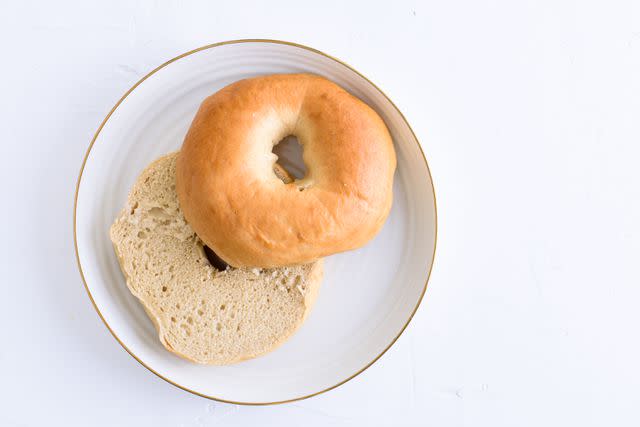
Verywell / Alexandra Shytsman
Bread and cereals, in general, are good sources of complex carbohydrates like starches and fiber that provide energy for your body. These are the types of carbs that are metabolized a little more slowly than simple carbs (like sugar).
Bagels are extra calorie-dense. While one slice of white bread has about 70 calories, one small bagel has more than 180 calories. Extra-large coffee shop bagels can have well over 300 calories.
Top your bagel with nut butter (about 190 calories) and fruit spread (about 50 calories), and you'll have a tasty, energy-packed mid-morning snack that totals 420 to 540 calories.
Experiment with other nut butter, including almond butter or cashew butter, or try seed butter, such as tahini or sunflower seed butter.
Pasta
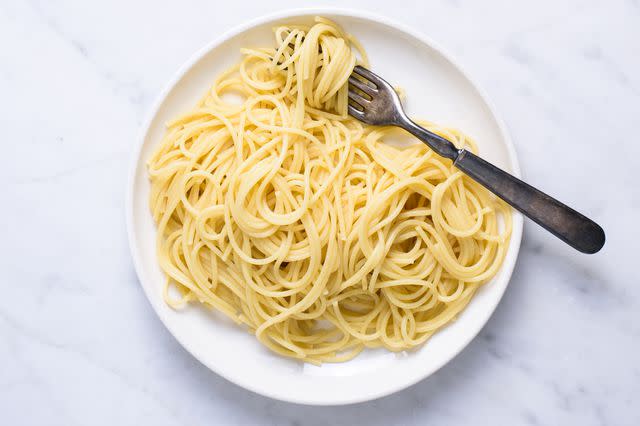
Verywell / Alexandra Shytsman
Pasta is another calorie-dense source of carbs that provides an ideal base for any number of meals. Add pasta sauce and you're ready to go.
Two cups of cooked spaghetti has nearly 400 calories. A cup of bolognese sauce adds at least 160 calories. Sprinkle two tablespoons of parmesan cheese on top for another 45 calories, and you'll have no less than 600 calories in one meal.
Related: Spinach Spaghetti Aglio e Olio
Dried Fruit
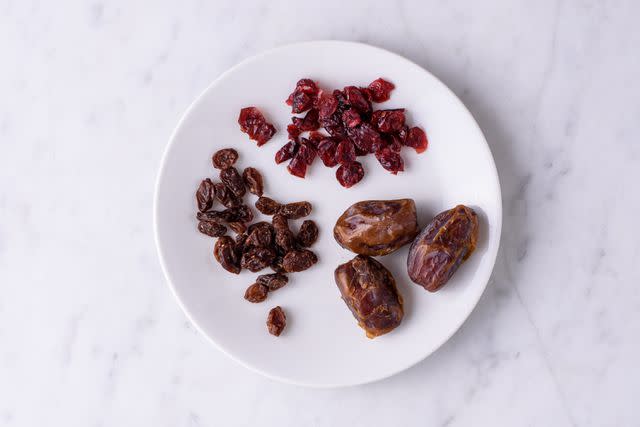
Verywell / Alexandra Shytsman
Give yourself a quick calorie boost by eating a handful or two of dried fruit. They have less volume than their fresh counterparts, so you can eat more in one go without feeling stuffed.
For example, one cup of raisins has around 400 calories compared to a full cup of fresh grapes, which has about 60 calories. Try dried berries, apricots, apples, cranberries, and tropical fruits.
Healthy Oils
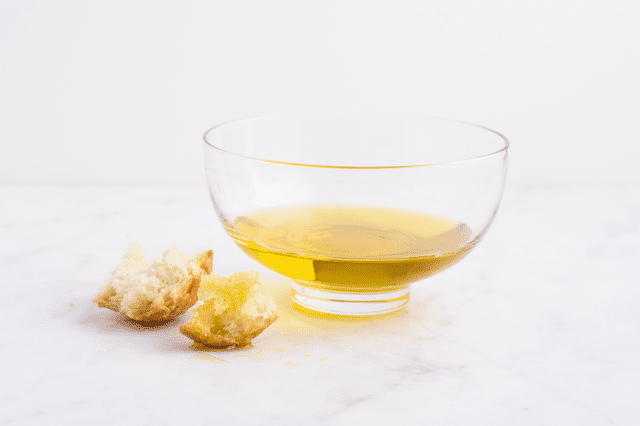
Verywell / Alexandra Shytsman
Adding extra fat to your food is an easy way to add calories, but you want to choose the fats and oils that are good for you.
Olive oil is rich in healthy monounsaturated fats and can add calories and flavor to pasta, bread, or vegetables. Canola oil is a great source of omega-3 (alpha-linolenic acid or ALA) and monounsaturated fats, making it a terrific cooking oil. Walnut and grape seed oils are lighter in flavor and perfect for dressing salads.
Avocados
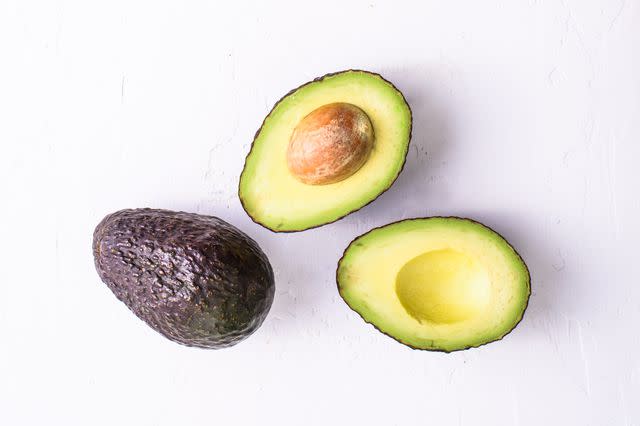
Verywell / Alexandra Shytsman
Avocados are rich in monounsaturated fatty acids, vitamin K, potassium, and fiber. One avocado has more than 200 calories, so it's a good way to add extra calories without sacrificing nutrition. Add avocado slices to your sandwiches or make guacamole to serve with baked tortilla chips. You can also add guacamole to soft shell tacos or burritos.
You can also try adding avocado to your favorite smoothie recipe. The mild flavor mixes well with ingredients like berries or chocolate.
Related: What to Eat at Chipotle: Healthy Menu Choices and Nutrition Facts
Nuts and Seeds
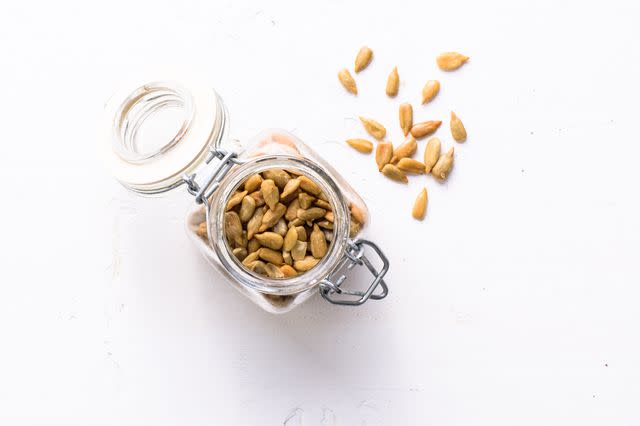
Verywell / Alexandra Shytsman
Nuts and seeds contain polyunsaturated fats that add healthy calories to your diet. Brazil nuts, almonds, walnuts, pecans, cashews, sunflower seeds, flax seeds, and pumpkin seeds are all good for you. Eat roasted nuts and seeds by the handful or sprinkle chopped nuts on top of ice cream, yogurt, or salads.
If you're not a fan of snacking on nuts, you can pack in extra calories with nut butter. One tablespoon of peanut butter, for example, has about 100 calories.
Related: Peanut Butter Calories and Nutrition Facts
Granola
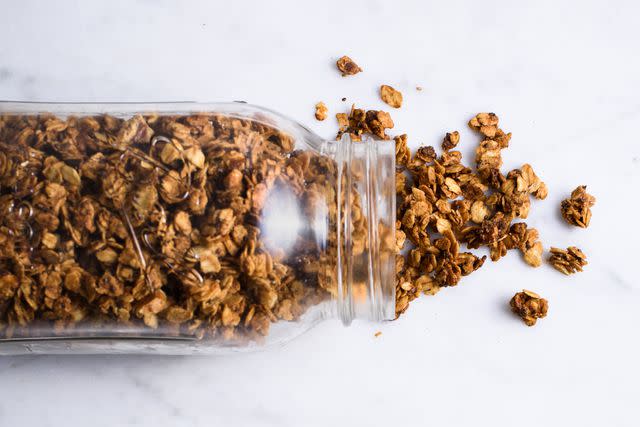
Verywell / Alexandra Shytsman
Make your granola with any combination of dry whole-grain cereals, nuts, seeds, and dried fruits. Store your granola in an airtight container and serve it for breakfast. Pack granola into small plastic containers to take on busy days. Add dark chocolate chunks or peanut butter chips for more flavor and calories.
Protein Bars
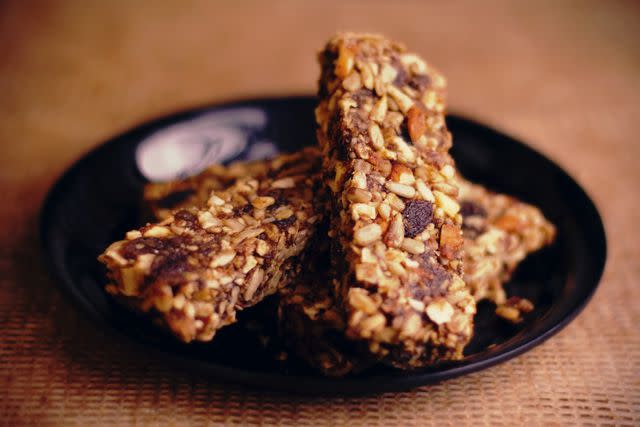
Increase both your calorie and protein intake with protein bars. Protein is important because your body needs it to build lean muscle.
You can often find high-calorie protein bars in drugstores in the supplements section. While some prefer protein shakes, they tend to make you fuller faster if they contain extra-rich whey.
Don't use protein bars as a meal replacement if weight gain is your goal; you will not get enough calories. Instead, pack them in your purse, desk, or work bag so they are always on hand for a midday snack.
Cheese
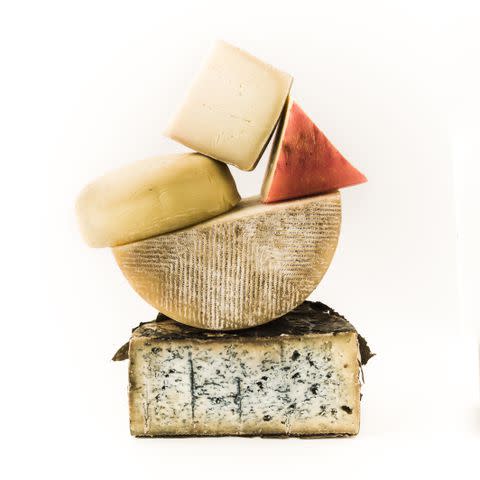
Getty Images
Cheese is an excellent food for weight gain. It is calorically dense and offers several nutritional benefits. It is high in Vitamin K2, which helps support cardiovascular health. It is also a good source of calcium.
Cheese is a great addition to other foods and can be used to add flavor dimension as well as a calorie boost. It is also delicious as a snack or with whole-grain crackers.
Fatty Fish
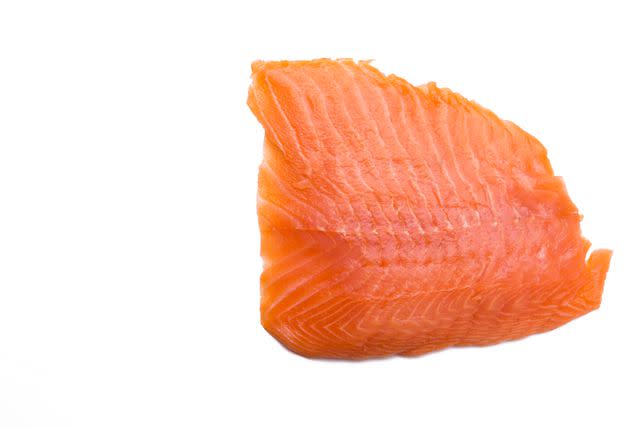
Getty Images
Fatty fish, such as salmon, herring, mackerel, and halibut, are rich sources of omega-3 fatty acids. These compounds may improve cardiovascular health. Research suggests omega-3 fatty acids can reduce the risk of diseases such as Alzheimer's, cancer, dry eye disease, and rheumatoid arthritis. However, more studies need to be conducted to clarify whether this is true and to what extent.
It is recommended that you eat fish one to two times per week. Try pairing it with starchy vegetables like corn or potatoes.
A Word From Verywell
People with low body weight may want to add foods for healthy weight gain. Eating to gain weight doesn't have to include indulgent, unhealthy foods. Many nutrient-dense foods can also contribute to healthy weight gain.
Consult a healthcare provider if you are unsure of your ideal weight. There is no one-size-fits-all approach to maintaining an ideal weight, and a physician or registered dietician can help you design an eating plan.
Read the original article on Verywell Fitness.
